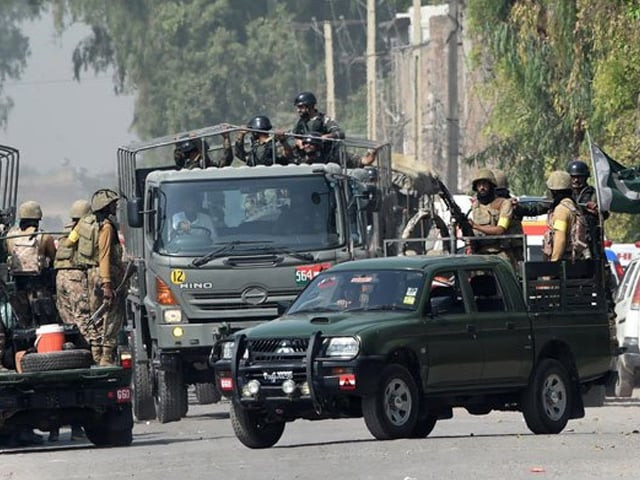Just as our friends in India promptly hold Pakistan responsible for every little brawl or bang that occurs in their country, our public/media too should move to the forefront in assuming that these same ‘friends’ could very well have been party in some capacity to the orchestration of the Badaber bloodbath.
Interestingly, I tweeted my perspective,
Badaber attack needs to be analyzed in much wider context. Pakistan has more enemies than just the TTP right now. #Badaber
— Aalia Suleman (@aaliasuleman) September 18, 2015
To which, an Indian friend, I’m assuming he is Indian judging by his name, responded,
Pakistan's belligerence in persisting with non-state actors as instruments of its policy,has made ground fertile for #Badaber.@aaliasuleman
— RAJAT BULAND (@rajsban) September 18, 2015
In all likelihood, the specific ‘non-state’ actor he is referring to is the TTP and the ‘policy’ refers to Pakistan’s on-going efforts to bring Ashraf Ghani to the table to resolve issues with the Taliban. TTP is indeed a non-state actor, a violent non-state actor for that matter, and also the one that Operation Zarb-e-Azb is specifically targeting. Ironically enough, it is a non-state actor that cannot be ignored, being a key linchpin in the Af-Pak relationship despite its violent mode of operation.
For all the bile it is likely to raise in the throat, a non-state actor often has to be accommodated as an integral part of foreign policy. If India feels that Pakistan is being belligerent in hounding the TTP, it is justified in that assumption. Despite the nature of its violent core values, the TTP is a political actor that could play a potential key role in soothing out the creases between Afghanistan and Pakistan; TTP instigated violence has to stop.
What also needs to be realised is that the TTP is not the only enemy at, or within, Pakistan’s borders right now. Hence, the great likelihood that other groups keen to damage Pakistani interest by riding on the waves created by the TTP cannot be brushed aside. It is in the interest of other actors such as RAW, al Qaeda, and ISIS that issues with the TTP remain unresolved as it provides them the necessary cover for their own clandestine operations.
Where conventional wisdom in Pakistani politics has been to ignore non-state actors like a cancer that is not touched for fear that it might spread, the modus operandi has been dramatically altered. The army, as it has proven with Zarb-e-Azb, is now hell bent to root out this cancer regardless of the consequences, such as witnessed in the Badaber tragedy which took place yesterday.
Regretfully enough, these cancers should never have been allowed to get so deeply in rooted. But regardless of the damage that has already occurred, it is time to move forward now, one group at a time.
And judging by the success in thwarting the Badaber attack, the army is quite well prepared to take whatever measures it has to in cleaning up Pakistan.



COMMENTS
Comments are moderated and generally will be posted if they are on-topic and not abusive.
For more information, please see our Comments FAQ